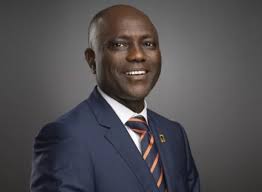It has been rightly observed that Nigeria is one of those few countries in the world where the leaders are older than the country! America, with over 200 years’ history, is ruled by a 40-something year old. But Nigeria, which is not yet 60 years old, has been ruled by people in their 70s. Shouldn’t these people take a bow and allow young brains and blood to take charge of the country? There is need to provide the right environment for the youth. The truth is that the future belongs to the youth. There is no doubt that there are many Nigerians at home and in the Diaspora who desperately yearn for change.
There is no doubt that almost all Nigerians want change, and the mood for change is evident from small villages to big cities where poverty, disease, lack of social infrastructure and most significantly lack of hope is everyday reality for millions of Nigerians. The 21st century Nigeria seems to be a shadow of its glorious past with recruiters from governmental establishments sloping university campuses in search of prospective employees, even before they graduated. Today, the story is different as our youth, even those who have reached the highest academic echelon, are hopeless, helpless, jobless and at times homeless.
The Nigerian population is predominantly youthful. The youth alone comprise over 60 per cent of the electorate. But they have not been given proper education. Nigeria does not give a hoot about its youth, has no plan for them, and is not empowering them to be productive, so we don’t have to look any further to know why the country is where it is today.
This is unlike elsewhere where politics is based on issues and ideas. In many other countries, young persons are specially groomed to assume leadership positions and they are encouraged in every possible way. Some of the most powerful countries in the world today are led by young persons. When U.S. President Barack Obama assumed office as President in 2008, he was 47. Dimitry Medvedev became President of Russia in 2008 at the age of 43. Before these two, former British Prime Ministers John Major and Tony Blair, and former U.S. President Bill Clinton had demonstrated the potential and power of youthful imagination in public life. David Cameron who assumed office as the new British Prime Minister was born in 1966.
In some other climes, the youth are pampered because the future of any country depends on them, but in Nigeria, it is different. A youth is to be regarded with respect. How do we know that his future will not be equal to our present? In countries where things are better organised, the leaders know and do better, after all, they were once youth, now adult, and, would soon hand over and then disappear from the political scene, as “the young shall grow and the old shall die”. So, those countries do protect their youth and would never want anything to hurt them, because, they are their greater tomorrows,.
But in Nigeria, things are not done the normal ways, that’s why Nigerian political elite and government officials never loosen their strangulating grip on power; they keep recycling themselves and their children, and the poor Nigerians are left unattended.
The youth have enormous responsibility in charting a new course for Nigeria. We need to transform our practical ideas into sustainable realism. Our problems in Nigeria will not be solved by secession; our problems in Nigeria will not be solved by waving spears and arrows; our problem in Nigeria can only be solved when Nigerians at all social strata hold the humanity of one another. When Nigerians embrace the spirit of “Live and let live”; the true spirit of egalitarianism. Our problems could be solved through non-violent but persuasive discussions, objective engagement and sustainable diplomacy.
The greater percentage of our youth spend years acquiring education, but will never get a job. What the ruling elite does is to make Nigeria so “uninhabitable” for the youth that many are forced to leave the shores of Nigeria for greener pastures elsewhere, even in countries worse than Nigeria economically. The ruling class is happy when many Nigerian youth leave so that nobody would challenge their misrule and corruption. Those remaining in Nigeria have been flattened out and are now more preoccupied with how to merely exist, rather than how to challenge the government’s high-handedness and recklessness. The duty of youth is to challenge corruption,” but, the youth who should have challenged those misrule Nigeria have left. Many have fallen by the wayside, many have died in transit, while their relations in Nigeria are still hoping that their son, brother, sister or daughter is somewhere abroad.
Blueprint gives you the latest Nigerian news in one place. Read the news behind the news on burning National issues, Kannywood, Videos and the Military



